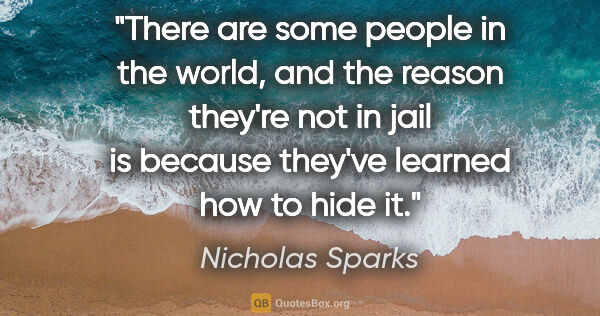How Quotes (page 472)
Her nerves gathered together so quickly, Gennie nearly dropped the five pounds of briquettes on the ground. When she'd finished being exasperated with herself, she laughed and poured a neat pile of charcoal into the barbecue pit. So this was the coolly sophisticated Genvieve Grandeau, she thought wryly; established member of the art world and genteel New Orleans society, about to drop five pounds of charcoal on her toes because a rude man was going to have dinner with her. How the mighty have...
Nora Roberts


But these vague whisperings may arise from Mr. Snagsby's being, in his way, rather a meditative and poetical man; loving to walk in Staple Inn in the summer time; and to observe how countrified the sparrows and the leaves are... and to remark (if in good spirits) that there were old times once, and that you'd find a stone coffin or two, now, under that chapel, he'd be bound, if you was to dig for it.
Charles Dickens
He had the uncanny capacity to know exactly what your weak point is, know what will make you feel small, to make you cringe," Joanna Hoffman said. "It's a common trait in people who are charismatic and know how to manipulate people. Knowing that he can crush you makes you feel weakened and eager for his approval, so then he can elevate you and put you on a pedestal and own you.
Walter Isaacson
Well, I'm gonna get out of bed every morning... breathe in and out all day long. Then, after a while I won't have to remind myself to get out of bed every morning and breathe in and out... and, then after a while, I won't have to think about how I had it great and perfect for a while. - Sleepless in Seattle
Nora Ephron
Life is the future, not the past. The past can teach us, through experience, how to accomplish things in the future, comfort us with cherished memories, and provide the foundation of what has already been accomplished. But only the future holds life. To live in the past is to embrace what is dead. To live life to its fullest, each day must be created a new.
Terry Goodkind

The ethics of reverence for life makes no distinction between higher and lower, more precious and less precious lives. It has good reasons for this omission. For what are we doing, when we establish hard and fast gradations in value between living organisms, but judging them in relation to ourselves, by whether they seem to stand closer to us or farther from us. This is a wholly subjective standard. How can we know what importance other living organisms have in themselves and in terms of the...
Albert Schweitzer


